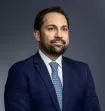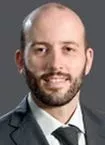On February 21, 2024, Deliberation of the State Environmental Council (CONSEMA) No. 01/2024 was published in the Official Gazette, establishing jurisdictions for the municipal environmental licensing of enterprises and activities which have, or may have, a local environmental impact in the state of São Paulo, in accordance with Article 9(xiv)(a) of Supplementary Law No. 140/2011. The deliberation comes as the result of technical discussions to update CONSEMA Deliberation No. 01/2018, which addressed the same topic.
In a nutshell, CONSEMA Deliberation No. 01/2024 clarifies rules for the assessment of municipalities capable of carrying out the environmental licensing process, adding relevant concepts and definitions for the recognition of municipal jurisdictions.
In this regard, it was established that, if the municipality fails, at any time, to meet the minimum requirements deemed necessary for environmental licensing—such as the existence of a qualified environmental agency, a multidisciplinary team made up of qualified professionals, and a proper Municipal Environmental Council, among others—that municipality will lose its qualification. In this case, it will fall to the Environmental Company of the State of São Paulo (CETESB) to assume environmental licensing activities.
Furthermore, the standard provides that municipalities may collaborate in public consortia to create the multidisciplinary team necessary for this process, in addition to supervising licensed projects. It should be highlighted that—even though public consortia were already provided for in Supplementary Law No. 140/2011 as an instrument of institutional cooperation of federative entities—the revoked CONSEMA Deliberation No. 01/2018 did not authorize them to carry out municipal environmental licensing.
In addition to such changes, CONSEMA Deliberation No. 01/2024 included 40 new types of enterprises and activities to be licensed by municipalities, taking into account the local impact and accounting for the size, polluting potential and nature of the activities. For example, the list of new deliberations includes activities related to waste management, such as Class A construction waste landfills (when not implemented in pits or other areas licensed for mining activities), central waste-sorting plants which process urban solid waste from regular public collection, construction-waste recycling plants, and certain industrial activities.
CONSEMA Deliberation No. 01/2024 will come into force 90 days after its publication in the Official Gazette—May 21, 2024, as established by Supplementary Law No. 95/1998. Furthermore, municipalities and public consortia have a period of 360 days from the standard's publication in the Official Gazette to assemble a technical team of public servants.
The Environmental, Climate Change and ESG Practice of Tauil & Checker Advogados, in association with Mayer Brown, is available for additional clarification on the topic.
Visit us at Tauil & Chequer
Founded in 2001, Tauil & Chequer Advogados is a full service law firm with approximately 90 lawyers and offices in Rio de Janeiro, São Paulo and Vitória. T&C represents local and international businesses on their domestic and cross-border activities and offers clients the full range of legal services including: corporate and M&A; debt and equity capital markets; banking and finance; employment and benefits; environmental; intellectual property; litigation and dispute resolution; restructuring, bankruptcy and insolvency; tax; and real estate. The firm has a particularly strong and longstanding presence in the energy, oil and gas and infrastructure industries as well as with pension and investment funds. In December 2009, T&C entered into an agreement to operate in association with Mayer Brown LLP and become "Tauil & Chequer Advogados in association with Mayer Brown LLP."
© Copyright 2024. Tauil & Chequer Advogados, a Brazilian law partnership with which Mayer Brown is associated. All rights reserved.
This article provides information and comments on legal issues and developments of interest. The foregoing is not a comprehensive treatment of the subject matter covered and is not intended to provide legal advice. Readers should seek specific legal advice before taking any action with respect to the matters discussed herein.



